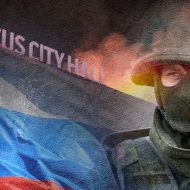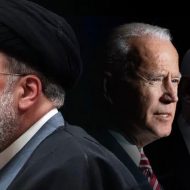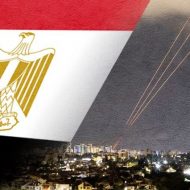Recent clashes between armed groups in the capital Tripoli have returned Libya back to international headlines, casting new doubts about the future of the country’s peace and stability.
We spoke with Dr. Issa Tuwegiar, former Libyan Minister of Planning and private consultant in Tripoli about these clashes, persisting disagreements among different conflict parties and a possible way out.
Clashes erupted around Tripoli recently. What is your explanation for the renewed fighting?
The fight erupted in the middle of the city between two armed groups; one supporting Fathi Bashagha and the other supporting Abdulhamid Dbeibeh. There is strong evidence this was an attempt of Bashagha to enter Tripoli and take over the government.
Bashagha “miscalculated his support”
How do you evaluate Fathi Bashagha’s positioning in the recent clashes?
He miscalculated his support and revealed poor planning. His action reflected strong desire to occupy power without regard to severe consequences: innocent civilian deaths, destruction and disaster. Many opposed him, not because they support Dbeibeh, but because they think his decisions to ally with those who waged war against Tripoli and continued to support dictatorship were totally unwise. His attack on Tripoli was a grave mistake.
The GNU Military Prosecutor issued an arrest warrant for Bashagha and the head of the Democratic Party, Mohammad Sowan. Many considered this an inappropriate measure.
Disagreements on constitutional base for elections
The US ambassador in Libya claims to have agreed with Presidential Council President Menfi on the “urgent need to finalize a constitutional basis and move towards elections, and also on the importance of taking steps to enhance transparency and accountability in the management of Libyan oil revenues”: In your opinion, what is missing to finalize the constitutional basis and are elections possible in the near future?
The constitutional base is missing the agreement on the condition for the candidacy for the president. The parliament wants to tailor it to enable Hafter taking part, while the High State Council insists on giving up the second citizenship and the position in the military before one can enter the election race.
US ambassador worried about oil revenues
What is the ambassador referring to when he speaks of “transparency and accountability in the management of Libyan oil revenues”?
He refers to the transfer of oil revenues from the NOC account in the Libyan foreign bank to the central bank according to the Libyan Law. He wants to be sure that oil revenues will not be kept by NOC or diverted somewhere else.
How do you evaluate specifically the French and Turkish role generally and during the recent clashes?
The French have been siding with Hafter and supporting Bashagha. I have not heard any official comments from France on the clashes. Türkiye has always stood against Hafter and supported Libyan consensus. Bashagha was a leader against the attack on Tripoli and cooperated with Türkiye to defeat Hafter.
Surprisingly, he later aligned with Hafter and gave him very important ministries. The people in the West of Libya regarded this as a very risky move that would bring Hafter to Tripoli again, after he had failed to conquer it by force and was defeated. Türkiye obviously did not support Bashagha in his adventure.
What was the role of Egypt? What role can Türkiye play with Egypt to resolve the Libyan conflict?
Egypt unfortunately is siding with Hafter and wants to install a dictator on Libya, They supported Bashagha, thinking he is able to enter Tripoli and facilitate the entry of Hafter. Türkiye is the only country that may be able to cooperate with Egypt and install a new government to guarantee the interests of both countries, without undermining the Libyans’ dream of building their free country. Otherwise, the Libyan case will remain stand still.









Leave a Reply